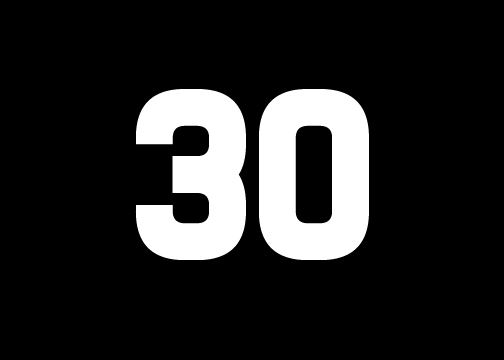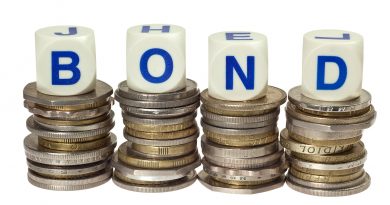5 Finance Things to Do Before You Hit 30
By Randell Tiongson, RFP®
There’s something about hitting 30. Somehow, you are still considered young at 30 and yet not that young anymore. Many things happen in many aspects of your life when you cross the 30 mark.
Your career should be taking off at this age; you may have started a family or are contemplating on starting one; you may have started accumulating wealth; and you may have also started accumulating debt.
I have crossed the big 30 many, many, many years ago, I felt there were many things I should have done before I hit 30. I was listening to my friend and colleague Marvin Germo (of Stock Smarts) on the things he has been doing for financial readiness and he is not even 30. Marvin mentioned many things he has done which I only started on much later. If ever I get to do things over again, here are the finance things I will definitely be serious about before hitting 30:
1. Ensure That You Have a Very Healthy Cash Flow
Folks in their 20s have started to earn and have begun to appreciate enjoying their income. The problem is, they enjoy their income too well, thus there is a tendency to spend every peso of it. This is a fun season to many as they now have freedom to do what they want and have the means to finance what they want. This is also a time of exploration to many especially for those who had parents who were a bit restrictive (like me as a parent), however, these explorations cost a lot of money. Accumulation of stuff also begins at this season and lifestyle upgrades becomes a social pressure.
Way before hitting 30, make sure you have a good grip on your money management. Working on a written budget is the best place to start. Learn how to allocate your income between needs and wants and make sure that at the end of the month, there is savings left. For those in their 20s, it’s best to have 30% to 40% savings left from income which is very possible if you have the discipline to stick to a budget. The money behavior you will have during this period will a have a lasting impact on your financial future so better start doing things right.
2. Minimize or Resist From Borrowing
Credit card companies and financial institutions are always targeting this age group because they understand that people in their 20s love to accumulate stuff, see the world and enjoy life in general – the perfect setting to lure people into debt! Not all debt is bad but you need learn how to discern a good debt from a bad one. Generally speaking, a good debt is one that will allow you to grow your assets and/or add income like a loan to finance a business or to purchase a real estate property. Any other debt that will not grow your asset base or add on to your income would be considered a bad debt like using your credit card to finance your new Samsung or iPhone smart phone, a Michael Kors bag, or your dream vacation to Bali.
People in their 20s begin to accumulate credit card debt and other consumer loans which are grossly disproportional to their incomes. The bad credit decisions you will make during your 20s will have severe ramifications up to your 40s and 50s. Your credit standing will also be made or broken during this time so learn how to use credit responsibly.
3. Start Investing
The best time to begin investing is whey you are young! When you have a lot of time, you have more options on how to grow your wealth and even take in more risks. Taking in more risks will mean that there is a better chance of growing your wealth faster and you can ride the ups and downs of the economic cycles. If you lose money and you are young, you still have a lot of time to recover. The good investments for long term would be investments in the stock market, mutual funds or UITFs that are invested in equities. While they are volatile, they are bound to generate the best returns over a long stretch of time. My friend and investment trainer Ricky So said, “Take risks when you are young, if you lose your money, you still have your parents to run to.” Funny guy!
Start learning how to invest and act on it. There are a lot of seminars and training for the public on how to invest but don’t linger with making that first investment. A good way to start would be putting some money in a mutual fund or the UITF of your bank. Equity laced funds like stock funds or even balanced funds are ideal for young investors. You may also consider some on-line trading if you want to have a say over your stock market investments. Just a note, if you will not have the time and the competence to trade your own stocks, stick to mutual funds or UITFs. Make your investing automatic by regularly adding to your funds or buying more shares. In your 20s, you probably don’t have sizeable investment funds yet but small amounts done regularly will also produce great results. If you started investing only P2,000 every month at the age of 21, you would have accumulated over P1 million by the time you hit 41 (assuming a yield of 8% p.a.). Have an auto-debit arrangement for your investing; making things automatic does the trick. Remember, invest early, invest wisely and invest regularly.
4. Buy Life Insurance
This is not a pitch for life insurance agents but I encourage you to listen to one. If there are people already depending on your income, do not delay in buying a life insurance policy. Premiums are much cheaper if you buy it before you hit 30 and I also notice that premiums rise sharply when you hit your 30s and 40s. Just remember to buy a policy you can afford. There are many kinds of life insurance policies but I would probably stick to either a term insurance or a Variable Universal Life insurance or VUL. Term insurance if you want to maximize your coverage and keep your premiums low – the downside is that you do not earn from this kind of policy. I suggest that you buy term and also invest in mutual funds or you can buy a VUL which is a term insurance with a mutual fund. Just make sure you chose a reputable provider and one who has a good record on after sales service. For your peace of mind, you may want to limit your choices among the top 10 life insurance companies.
5. Learn from Your Mistakes and the Mistakes of Others
For sure, you will make a lot of mistakes in your 20s – and your 30s, 40s, 50s, 60s and 70s. Along with many other mistakes you are bound to make, some of them are financial mistakes – bad investment decisions, wrong borrowings, wrong purchases, etc. But that’s life and the best way to respond to our mistakes is for us to learn from it and not repeat it anymore. As you make those mistakes, always look for the lesson behind those mistakes and learn to avoid them in the future.
Experience is your best teacher but we don’t always have to learn from our own experience. You can also learn much from other people’s experiences and in this case, other people’s mistakes. Look for mentors who can help you and learn from their experiences and their mistakes as well.
Hitting 30 is a big thing and somehow, it’s a passage rite to many of us. It is a time to learn from the past but be hopeful for what the future will bring.
“Don’t let anyone think less of you because you are young. Be an example to all believers in what you say, in the way you live, in your love, your faith, and your purity.”
– 1 Timothy 4:12, NLT
 Randell Tiongson is an advocate of Life & Personal Finance and a director of the Registered Financial Planner Institure (RFP). For training, consultancy & inquiries, please send email to randell@randelltiongson.com. To read his personal finance blogs, visit www.randelltiongson.com
Randell Tiongson is an advocate of Life & Personal Finance and a director of the Registered Financial Planner Institure (RFP). For training, consultancy & inquiries, please send email to randell@randelltiongson.com. To read his personal finance blogs, visit www.randelltiongson.com



